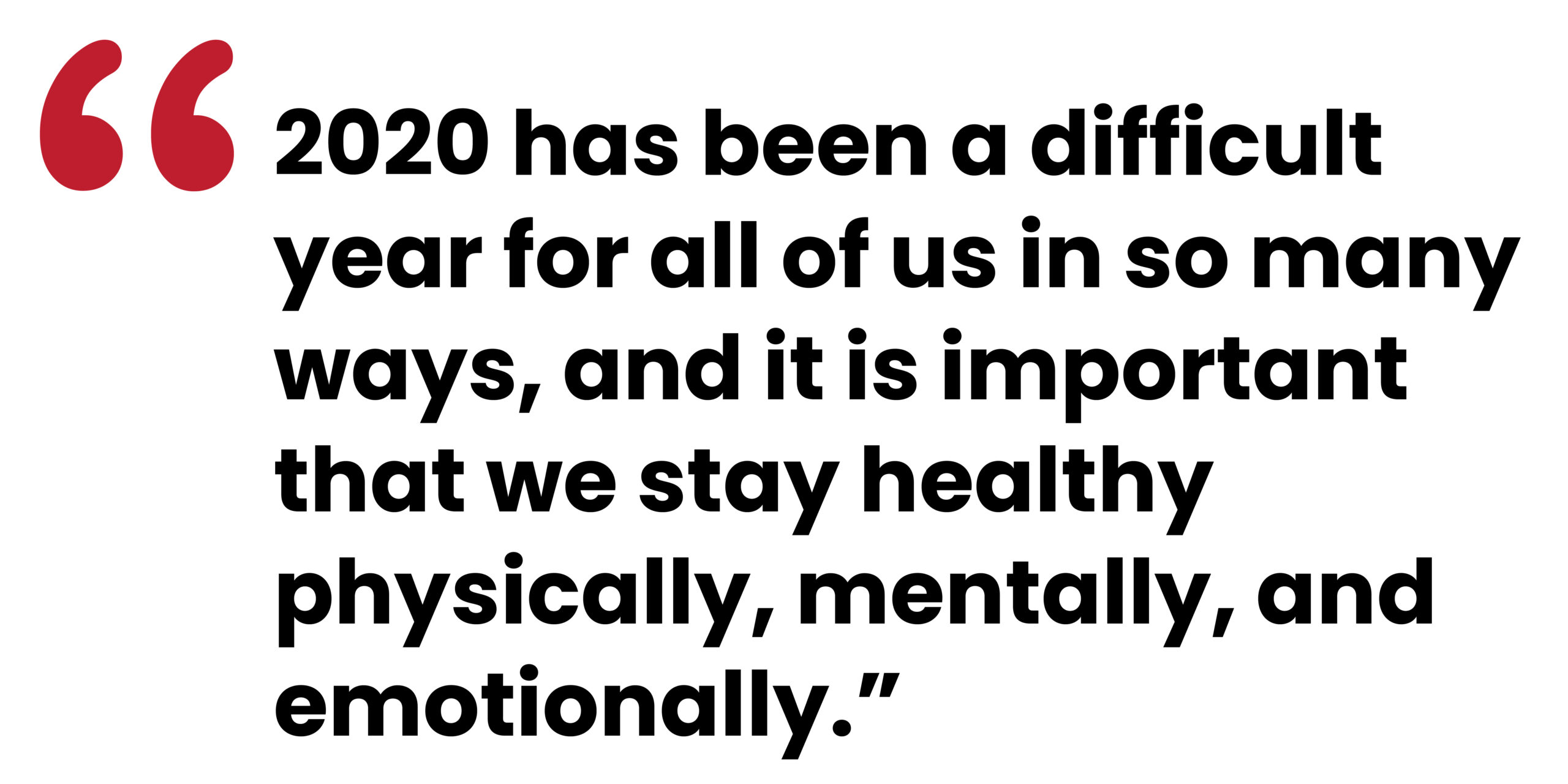By Elise Bechtel
As the academic year progresses with virtual learning during the pandemic, students face new and ongoing stressors with limited resources and outlets. Much like the rest of the world, we are having to navigate a new way of living and thus need to find ways of coping with everything going on around us.
According to Kirsten Olson, Director of Counseling and Psychological Services (CAPS), students are experiencing a lack of peer engagement. This kind of stressor has become more prevalent than in previous years because of online learning.
Human beings are a social species, and when we are isolated, we can get depressed and lonely. A way to fight off the blues and stay socially distanced is to have a Zoom call with your friends. Set aside a time with some friends to chat or watch a movie.
Every student learns differently. It can be difficult for professors to use a variety of teaching techniques over Zoom, and that can cause students to feel “like they have to learn independently because they are not consistently receiving the information during lecture in a way that matches their learning styles” said Olson.
Many students turn to their textbooks, YouTube and other websites in hope of finding someone that will teach a topic in ways that they understand. Because we are not on campus, many students may not realize that both the Learning Resource Center and Stem Center are continuing to offer free, online tutoring.

“Zoom fatigue” is a phrase that has become more recognizable in recent months. Phsyciatrictimes.com says that it is the feeling of “tiredness, worry or burnout associated with overusing virtual platforms of communication”. Olson provided a list of a few basic things you can do to help relieve stressors such as zoom fatigue:
“1. Drink more water throughout the day
2. Go outside and take a few deep breathes
3. Eat more fruits and vegetables”
If you feel that you just need a break from staring at a screen and listening to professors talk, instead of watching an episode of your favorite show, maybe take a walk around your neighborhood. This is a great way to clear your mind and feel refreshed.
If the stress of everyday life becomes overwhelming and the coping skills you normally use do not work anymore, Olson said you might want to “consider asking for more help from mental health professionals”. CAPS is a free, short-term, mental health service provided to CI students. CAPS provides a wide range of services including, but not limited to, individual therapy, group therapy, crisis intervention and 24/7 phone counseling. Like many other campus services, CAPS is now providing online sessions. All you need to do is make an appointment. CAPS can be reached at (805) 437-2088 or caps@csuci.edu. Additionally, you can visit their website at https://www.csuci.edu/caps/.
2020 has been a difficult year for all of us in so many ways, and it is important that we stay healthy physically, mentally, and emotionally. Having positive coping methods to counteract the negativity of day-to-day life can make a huge difference in our perception of the world.
If you are having trouble in classes, don’t be afraid to reach out to the LRC and Stem Center. Take the time you need to support your mental health and discover what techniques work best for you. When life becomes overwhelming, feel free to reach out to CAPS for guidance. You are not alone in this new, virtual reality and there is always a silver lining. You only have to find it.

